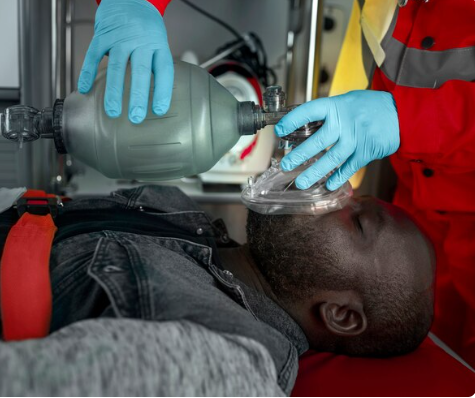
Introduction
Emergency services are fundamental to any community, providing immediate assistance during urgent and critical situations. From handling medical emergencies to responding to fires and crimes, emergency services are vital for ensuring public safety. This article provides a detailed look at the different aspects of emergency services, how they function, and why they are so important.
Overview of Emergency Services
Emergency services consist of various specialized units, each equipped to handle different types of emergencies. These services are structured to work together effectively to provide comprehensive support when needed.
1. Medical Emergency Services
Medical emergency services are among the most visible and frequently used. They include:
- Ambulance Services: These vehicles are staffed with paramedics and equipped with medical equipment to transport patients quickly and safely to hospitals.
- Emergency Medical Technicians (EMTs): EMTs provide on-the-spot medical care during emergencies, stabilizing patients before they reach a medical facility.
- Air Ambulance Services: For urgent cases requiring swift transportation, air ambulances use helicopters or planes to move patients rapidly.
2. Fire Services
Fire services focus on battling fires, rescuing people in peril, and dealing with hazardous materials. Their components include:
- Firefighters: These professionals handle fire suppression, rescue operations, and sometimes provide emergency medical services.
- Fire Trucks: These vehicles carry equipment like hoses and water tanks necessary for extinguishing fires.
- Fire Stations: Strategically placed to ensure fast response times to emergencies.
3. Police Services
Police services are responsible for maintaining law and order, responding to crimes, and ensuring safety. They include:
- Patrol Officers: Regularly patrol neighborhoods to deter crime and respond to incidents.
- Special Units: Include specialized teams such as SWAT, K9 units, and traffic enforcement.
- Emergency Call Centers: Handle 911 calls and coordinate police responses.
How Emergency Services Operate
The emergency response system is a well-coordinated network designed to address a variety of emergencies effectively. Key elements include:
1. 911 System
The 911 system is essential for emergency responses. It allows people to quickly reach emergency services by dialing a single, widely recognized number.
- Call Centers: Managed by dispatchers who evaluate emergency calls and deploy the necessary services.
- Geolocation Technology: Helps pinpoint the caller’s location to expedite the response.
2. Coordination and Communication
Effective coordination between different emergency services is crucial for a successful response. This includes:
- Incident Command System (ICS): A framework for managing emergencies that ensures all agencies involved work together effectively.
- Communication Tools: Radios, mobile phones, and other devices facilitate real-time communication and coordination.
3. Training and Preparedness
Emergency responders undergo extensive training to handle various scenarios. This includes:
- Drills and Simulations: Regular practice exercises that replicate real-life emergencies to ensure readiness.
- Certifications and Continuing Education: Ongoing training to keep skills and knowledge current.
The Significance of Emergency Services
Emergency services are essential for numerous reasons:
- Saving Lives: Rapid response can be crucial for survival in critical situations.
- Protecting Property: Effective firefighting and police work help prevent and mitigate damage.
- Supporting Communities: Emergency services offer reassurance and aid during crises, helping communities recover and rebuild.
Challenges Faced by Emergency Services
Despite their importance, emergency services encounter several challenges:
- Resource Constraints: Budget limitations can impact the availability of necessary equipment and personnel.
- High-Stress Situations: Responding to emergencies is demanding and can be stressful.
- Coordination Difficulties: Ensuring smooth communication among different agencies can be complex, especially during large-scale emergencies.
How to Support Emergency Services
There are several ways to support emergency services:
- Volunteer: Get involved by volunteering for roles in community outreach or emergency response teams.
- Donate: Contributions can help purchase equipment and fund training.
- Educate Yourself: Learning basic first aid and emergency preparedness can enhance community resilience.
FAQs
What are emergency services?
Emergency services are specialized organizations that respond to urgent situations such as medical emergencies, fires, and criminal incidents. They include ambulances, fire departments, and police forces.
How can I reach emergency services?
In many areas, dialing 911 connects you to emergency services. A dispatcher will assess your situation and send the appropriate help.
What should I do while waiting for help?
If possible, provide first aid, stay calm, and keep emergency services updated on any changes in the situation. Ensure the area is safe for responders.
How are emergency services funded?
Emergency services are usually funded by government budgets, grants, and donations. Public funding is essential for maintaining and improving their capabilities.
What role do volunteers play?
Volunteers assist in various capacities, such as community outreach, disaster response, and administrative support. They are an important supplement to professional emergency responders.
Conclusion
Emergency services are a critical part of our society, offering essential support during emergencies. By understanding their roles, systems, and challenges, we can better appreciate the work of first responders. Whether through direct involvement or community support, everyone can contribute to enhancing the effectiveness of emergency services.
For further information or to get involved, contact Er Of Fort Worth, your local provider of emergency services and community support.
This guide provides a thorough overview of emergency services, and Er Of Fort Worth is available for any additional information or assistance you may need.
For More Blogs Please Visit: emperiortech.










